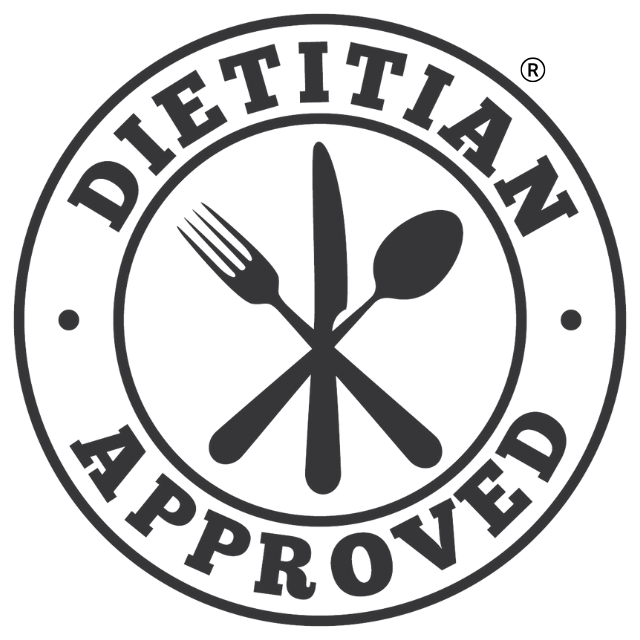
Are you the type of runner that knows exactly where every public toilet is along your route?
Don’t worry – you’re not alone! 30-50% of athletes regularly suffer from gastrointestinal (GI) problems while exercising (1).
Far too common among endurance athletes, GI symptoms include nausea, cramps, bloating, wind, vomiting, diarrhoea and urgency. The frequency, intensity and severity of these symptoms seem to increase as the event distance increases.
So why exactly does it happen?
It’s multifaceted and highly individual but reasons include mechanical, physiological, and nutritional factors (2). We also know that the symptoms are exacerbated by dehydration and hot weather conditions. If you are female, younger and run at high intensity, you may be at higher risk of GI symptoms too (1) (damn it).
Running causes an increase in intra-abdominal pressure which, when combined with our organs bouncing up and down can cause GI symptoms (2). When we exercise, blood flow is re-directed away from our gastrointestinal tract to the exercising muscles, heart, lungs, brain and skin. Blood flow to our intestines can be reduced by as much as 80%!! This obviously compromises gut function and can exacerbate symptoms.
Hydration plays an important role. Dehydrated athletes have reported increased rates of nausea, abdominal cramps and delayed gastric emptying (food leaving your stomach) and associated nausea. Combine decreased blood flow to the gut with dehydration and it can cause increased permeability of the gut (2). In plain English – things are moving across the gut walls in a way they shouldn’t be, causing GI upset.
From a nutritional point of view; fat, fibre, protein and high carbohydrate concentrations (osmolarity) can all be associated with increased risk of GI symptoms. Fat, fibre and protein all slow down digestion – not ideal when you’re running at pace. Large amounts of carbohydrate may not be fully absorbed, leaving residual carbohydrate in the stomach causing GI symptoms during exercise such as bloating, fullness, flatulence and nausea (2).
What can you do to prevent runners gut? Here are our tips:
1. Train your gut
The gut is extremely adaptable. Research (in humans) shows that you can train your gut in as little as ~30 days to increase absorption capacity (2). Train your gut, just as you would your muscles. Start small and slowly increase the quantities of food and/or fluids you consume while running over a few weeks/months to build your tolerance. Try different types of foods, liquids and gels in training to figure out what works best for you. The golden rule of sports nutrition – NEVER try anything new on race day!
Keep in mind that GI symptoms are usually increased with distance, heat and humidity (3, 4), so you will likely need different strategies depending on the season and the distance you are running.
2. Play with different carbohydrate sources
We know our gut absorption rate of glucose alone maxes out at approx. 1g/min, or 60g/hour. For the longer endurance events >2hours (i.e. half and full marathons, 50km, 100km and ultra’s), higher carbohydrate intake is recommended, although it’s important to find your individual ceiling. You can increase your carbohydrate absorption by utilising different carbohydrates e.g. fructose. This is because it’s absorbed across the gut wall via a different pathway to glucose and can occur simultaneously. Stick to smaller doses, then build your tolerance up over several weeks/months. A Sports Dietitian can help you with a gut training protocol to help you with this.
3. Avoid high fibre foods before competition
In the day or two leading into hard training or competition when you bump up your carbohydrate intake, maintain your typical fibre intake to minimise the amount of undigested fibre left in your gastrointestinal tract. Choose white, more refined bread and cereals instead of wholemeal or whole grain. Keep high fibre veggies and fruits to a minimum. Some lower fibre options include tomato, zucchini, olives, grapes and grapefruit at <1g fibre/serve.
Note: This is not a long-term approach. It should only be followed for 1-2 days ahead of the competition. Generally, you should be consuming a high fibre diet to regulate bowel movements, keep you regular and keep your gut microbes happy.
4. Go easy on the coffee (sorry)
If you have a sensitive gut, avoid drinking coffee on an empty stomach or right before hard runs. I know, I know…coffee is the best elixir and has performance-enhancing effects – but coffee is a strong gut irritant and could be exacerbating your problem. Save your brew for post-exercise. There are plenty of other ways to get caffeine in – don’t stress.
5. Start exercise hydrated and stay hydrated!
It goes without saying right? Yet the number of athletes we see turn up to sweat testing already dehydrated is insane. Without the use of regular USG’s (urine specific gravity), monitoring the colour of your urine can give you a general idea on your hydration status. You’re aiming for pale, straw-coloured urine on a day to day basis as a measure of good hydration. Crystal clear and you’re overdoing it. Really dark and you probably need to drink more…
During exercise, you typically need to drink to replace sweat losses enough so you don’t put yourself into the red of dehydration where performance is affected. Do some sweat testing to figure out your sweat rate in different environmental conditions, then work to replace 50-80% of the losses depending on the conditions, duration and intensity. Again, something to practice. If your sweat rate is >3L/hour – you will struggle to drink and absorb this volume of fluid without some serious gut training!
Another good tip is to have a good hit of water with your pre-exercise meal (300-450ml) as this will help prime the stomach to empty well and absorb any nutrition you’re using during exercise. Something to practice. Start with a smaller volume (100-200ml) then build up to 350-450ml two hours before exercise.
An Accredited Sports Dietitian can help you develop an individualised hydration plan for training and racing.
6. Your day to day diet impacts your ability to absorb nutrients
Studies have shown increased gastric emptying of carbohydrate by increasing daily dietary carbohydrate (8). Interestingly, increased daily fat intake results in faster gastric emptying of fat, but not carbohydrate. How cool is that?
So, if you generally have a high carbohydrate diet, this increases your ability to absorb carbohydrate across the intestinal wall which in turn, allows greater absorption and then oxidation of carbohydrate during exercise (6). This lowers the chance of GI distress.
For those people that follow a low carbohydrate, high-fat diet generally, your intestines respond by decreasing intestinal absorption of carbohydrate and increasing fat absorption. If you then try and ramp up your carbohydrate intake just before competition, chances are you won’t absorb this as well and will have a higher chance of running into GI issues on race day (pun intended). It is also unlikely you will be able to increase your carbohydrate intake beyond 60g/hr if this isn’t something you’ve practised in training.
Ideal scenario – periodise your intake across the week so you have some days of high carbohydrate availability and some days with low carbohydrate availability depending on your goals and events.
Speak to an Accredited Sports Dietitian about the best strategy for you. Research shows that runners who applied a freely chosen nutritional strategy consumed less carbohydrates during the race and their finish time was longer (5).
Want better results and easy to follow strategies that are tailored to your individual needs? Get professional advice.
References
(1) de Oliviera EP, Burini RC. Food-dependent, exercise-induced gastrointestinal distress. Journal of the International Society of Sports Nutrition. 2011; 8: p12
(2) de Oliviera EP, Burini RC. Carbohydrate-Dependent, Exercise-Induced Gastrointestinal Distress. Nutrients. 2014; 6: p4191-4199.
(3) Pfeiffer B et al. Nutritional Intake and Gastrointestinal Problems during Competitive Endurance Events. Medicine & Science in Sports & Exercise. 2012; 44(2): p344-351.
(4) Sessions J et al. Carbohydrate gel ingestion during running in the heat on markers of gastrointestinal distress. European Journal of Sport Science. 2016; 16(8): p1064-1072.
(5) Hansen EA et al. Improved Marathon Performance by In-Race Nutritional Strategy Intervention. International Journal Sport Nutrition and Exercise Metabolism. 2014; 24: p645-655.
(6) Cox GR, Clark SA, Amanda J. Cox AJ, Halson SL, Hargreaves M, Hawley JA, Jeacocke N, Snow RJ, Yeo WK, Burke LM. Daily training with high carbohydrate availability increases exogenous carbohydrate oxidation during endurance cycling. Journal of Applied Physiology. 2010 109(1); p126-134 DOI: 10.1152/japplphysiol.00950.2009
(7) Lambert GP, Lang J, Bull A, et al. Fluid tolerance while running: effect of repeated trials. International Journal of Sports Medicine. 2008; 29: p878–82
(8) Cunningham KM, Horowitz M, Read NW. The effect of short-term dietary supplementation with glucose on gastric emptying in humans. British Journal of Nutrition. 1991; 65: (15–9).
(9) de Oliveira, E. P., Burini, R. C., Jeukendrup, A. 2014. Gastrointestinal complaints during exercise: prevalence, etiology, and nutritional recommendations. Sports Medicine 44 Suppl 1: S79-85.
If you are looking for a Sports Dietitian and want to learn more about working with me, click on the image below to see what I offer for private, 1 on 1 consultation.
If you’re looking for a more cost-effective option, start with one of my online courses.
Tags: Brisbane Dietitian, Brisbane Sports Dietitian, DietitianBrisbane, endurance running, endurance sports nutrition, hydration for running, marathon running, nutrition for running, prevent runners gut, run, runners gut, running, running nutrition, Sports Dietitian, Sports Dietitian Australia, Sports Dietitian Brisbane, sweat testing, what is runners gut?
Don't miss a beat!
New moves, motivation, and classes delivered to your inbox.
We hate SPAM. We will never sell your information, for any reason.
Recent Posts
Categories
All Categories 70.3 nutrition age group triathlete age-group triathletes ai ai for athletes ai nutrition ai nutrition apps austriathlon behind the scenes coffee & questions company news creatine diabetes dietitian approved dietitian approved crew electrolytes elite triathlete endurance athletes endurance nutrition endurance sport fuel for your sport fueling for athletes fueling for triathlon fuelling for triathletes fuelling for triathlon fuelling long course fuelling strategy glp-1 healthy lifestyle healthy living hydration improve triathlon performance ironman bike hydration ironman fuelling ironman hydration rules ironman nutrition ironman nutrition strategy ironman performance ironman training kelly estes matt hauser matthew hauser meet the team nutrition confidence nutrition for triathletes nutrition mistakes triathletes make ozempic partnerships personalised nutrition product reviews race day nutrition racing fuel red-s semaglutide sleep sodium sports dietitian sports dietitian advice sports nutrition sports nutrition 101 sports nutrition for triathletes sports performance sports supplements sweat rate taryn richardson team announcement tna tna success stories train smarter not harder training recovery triathlete books triathlete fat loss triathlete fatigue triathlete fuelling triathlon triathlon and epilepsy triathlon hydration triathlon meal plan triathlon meal planning triathlon nutrition triathlon nutrition academy triathlon nutrition advice triathlon nutrition education triathlon nutrition strategies triathlon pb triathlon performance triathlon recovery triathlon recovery nutrition triathlon strength training triathlon training nutrition triathlon training plan type 1 diabetes type 2 diabetes under-fuelling signs weight loss in sport world triathlon championship


